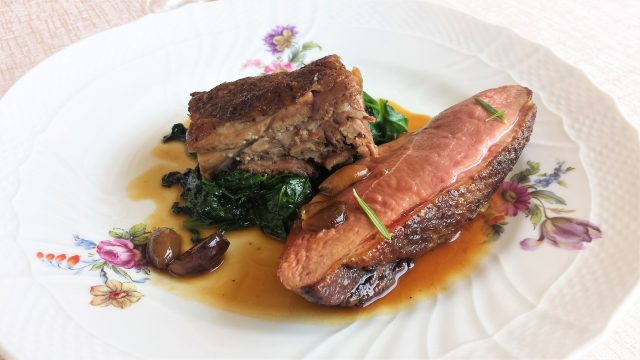Caffè Dante, Verona: Starting over with sommeliers!
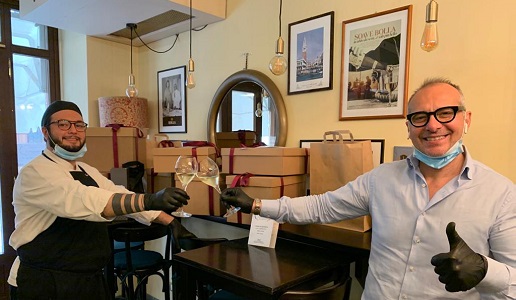
An interview with Gianpaolo Spinelli, the director of Verona’s Caffè Dante, focusing on his projects and ideas for starting up again without losing sight of the central role played by wine.
I must confess that I have lost count of the “phases” we’ve gone through but it doesn’t really matter for me because I’d like to think that at this moment we are in the one of “starting over”. I also don’t mind the term “coexistence” because it expresses well the concept of how we must accept compromise from both a social and work point of view.
Among those who have suffered the most from the lockdown and who still do not know when things will get back to normal (a normality we took too much for granted) are, without a doubt, operators in the food and drink sector. Taking advantage of the new series of original evening-events he helped create, I interviewed Gianpaolo Spinelli, the director of Caffè Dante, the historic and very central bistro and meeting place frequented by Verona residents and tourists from around the world, on the situation for restaurants in Verona.
DoctorWine: First of all, how are you and your staff? How did you make through the lockdown and how long did it last for you?
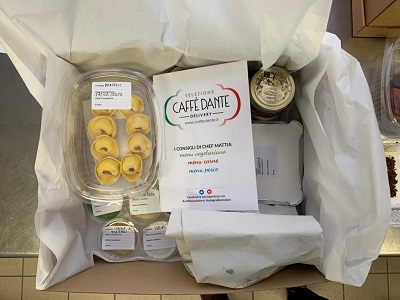
Giampaolo Spinelli: Fortunately, we were all and remain healthy physically. We shut down on March 9 and on April 1 began a takeaway service to then re-open on May 29. It is no secret that for a sector like ours, which was booming, it was very difficult at the beginning. I had a hard time at the start but then I was able to focus my attention in a right direction and I read and studied a lot. I thought deeply on the direction the restaurant sector was heading, especially in a tourist city like Verona. And I realized that we have to think full circle and focus, even more than before, on quality and the territory. Many talk about doing this but few put it into practice.
DW: So during the lockdown Caffè Dante engaged in takeaway and delivery. What were the greatest obstacles you encountered?
GS: This was something new for us and we could not just improvise. Today we offer three menus to choose from (vegetarian, fish and meat) and for each around 20% of the preparation must be done by the customer. For example, we provide the freshly made pasta but the customer has to boil it. The packaging is both elegant and functional and includes a set of instructions so the customer will not feel left on their own. Communication was paramount and the social media played a fundamental role. Our own customers would post photos and videos of their culinary “experience” using our kits and this turned out to be great advertising for us.
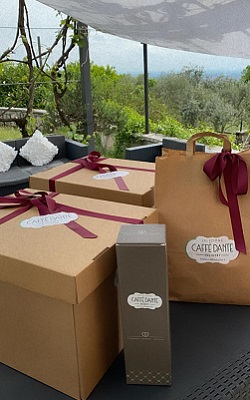
DW: Who took advantage most of your takeaway service?
GS: At the beginning our more regular patrons and later, thanks to what they would post on the social media, we had some new clients who then came to the restaurant when we reopened!
DW: Did the menu kits come with suggestions for wine pairing?
GS: I drew up a small wine list and also offered “consultancy” on the wines customers already had at home and could not wait to open. The wine we sold the most was Champagne.
DW: Did you take advantage of the slowdown to come up with anything new?
GS: For sure, our future mission will be focused on boosting quality, both in terms of the food we offer (fewer dishes but more rotation) and our other services and events. As for the wine, I will concentrate even more on what is offered by the glass. Thanks to tools like the Coravin system I can offer my clients authentic emotional experiences and I think that, now more than ever, it is important to experience certain emotions. One day I would like to see visitors to Verona having an all-encompassing experience and this must also involve restaurants, which in Verona are on an average still too low. My role model is the Langhe, where everything is top level.
DW: What was it like re-opening your restaurant? Will you continue to offer your takeaway service?
GS: There is a demand for it and so we will continue to offer it, also because we’ve seen that the future is anything but certain. Re-opening was great but there were some concerns. The primary challenge was convincing our customers that we want to ensure their safety and that we will do everything necessary, according to the rules and common sense. Our guests need to feel free to rely on us.
DW: Tell me about your “5 sommeliers in search of sobriety” event, which is finally back on track… what does it involve?
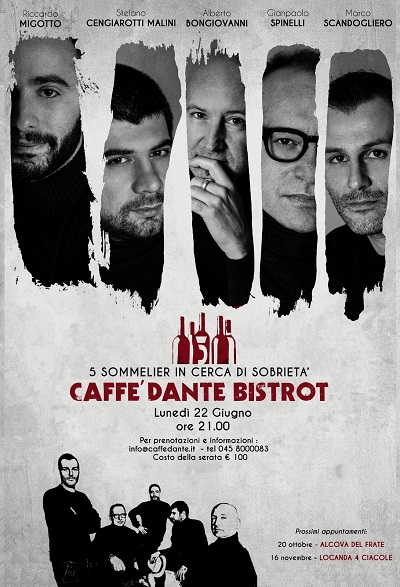
GS: The idea came to me and my sommelier colleague Stefano Cengiarotti, of the L’Alcova del Frate restaurant. We then involved three other sommeliers from three other important Verona establishments who, even more important, had strong personalities. It centers around a dinner the wines for which, eight each evening, are blind tasted and selected by the sommelier of the restaurant hosting the event. Thus the lead player is the sommelier, a role still too little is known about but that is fundamental as a go-between, the intermediary between the floor and the kitchen, the person who interprets the desires of the customer and relates them to the chef. I would like to take advantage of this occasion to appeal to young people interested in working in the restaurant sector: do not underestimate the importance of learning about wine! And to restauranteurs I say: invest in a sommelier because in the end they can make the difference and this not a cost but an authentic investment for the restaurant!
During these evenings we put on a real entertainment show and have fun with the wine pairings. The guests can fill out a fact sheet and those who come the closest to guessing the identity of the wines will become “sommelier for a night” and win a dinner as the prize. We began with the first five evenings being held in Verona but we want to make this an itinerant event and stage it in other cities and regions.
DW: Initiatives like these, as well as others, allow you to constantly interact with your colleagues. What are the greatest concerns and hopes they have related to you?
GS: The number one concern right now is that there is not enough cash coming in and so investments and future plans have been put on hold. Those who govern and administer over us never showed much interest in us and we feel abandoned and forgotten. Abroad there is a distorted image of the situation in Italy and foreigners don’t think they can visit us. There has been and continues to be too much silence on the part of those who should be leading us and this silence is frightening and certainly not consoling.

 Italiano
Italiano








